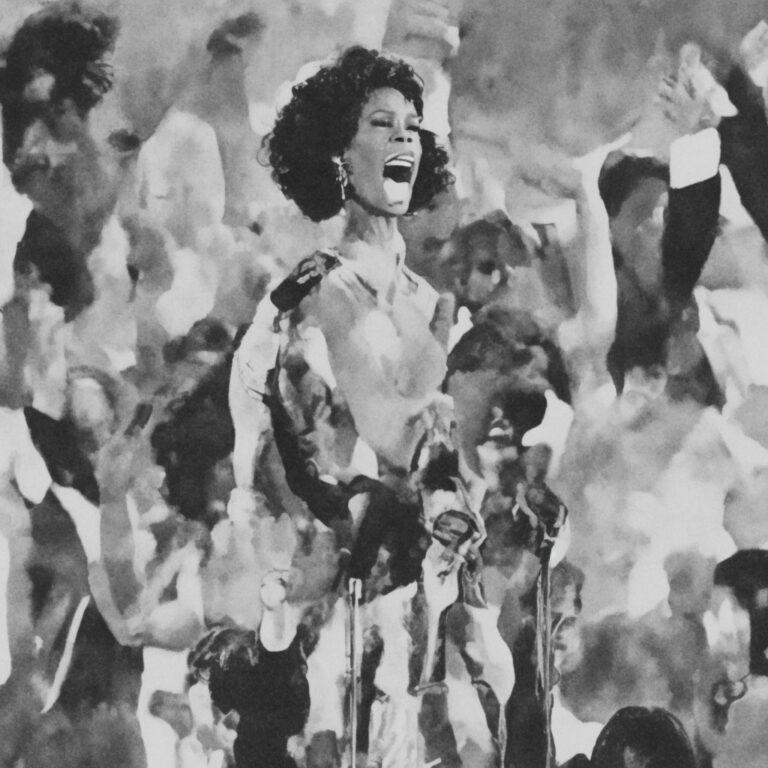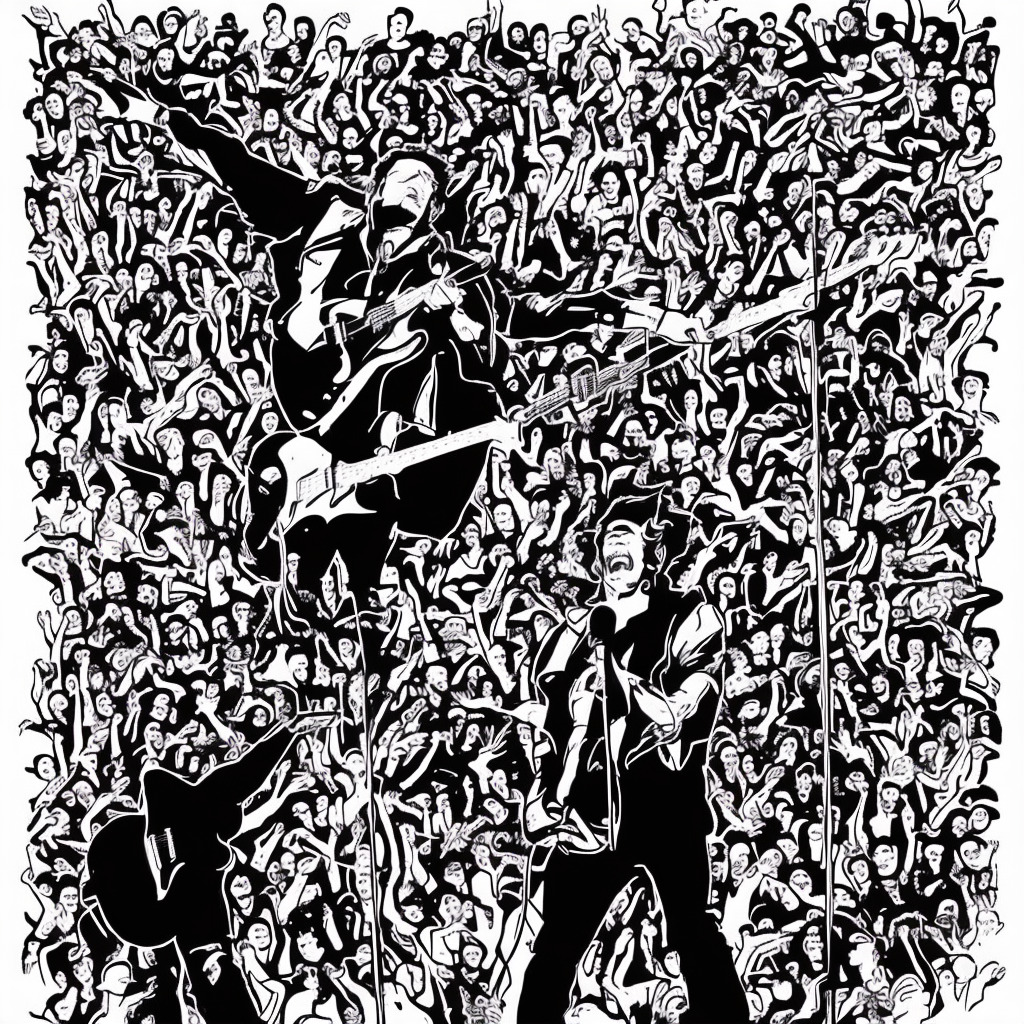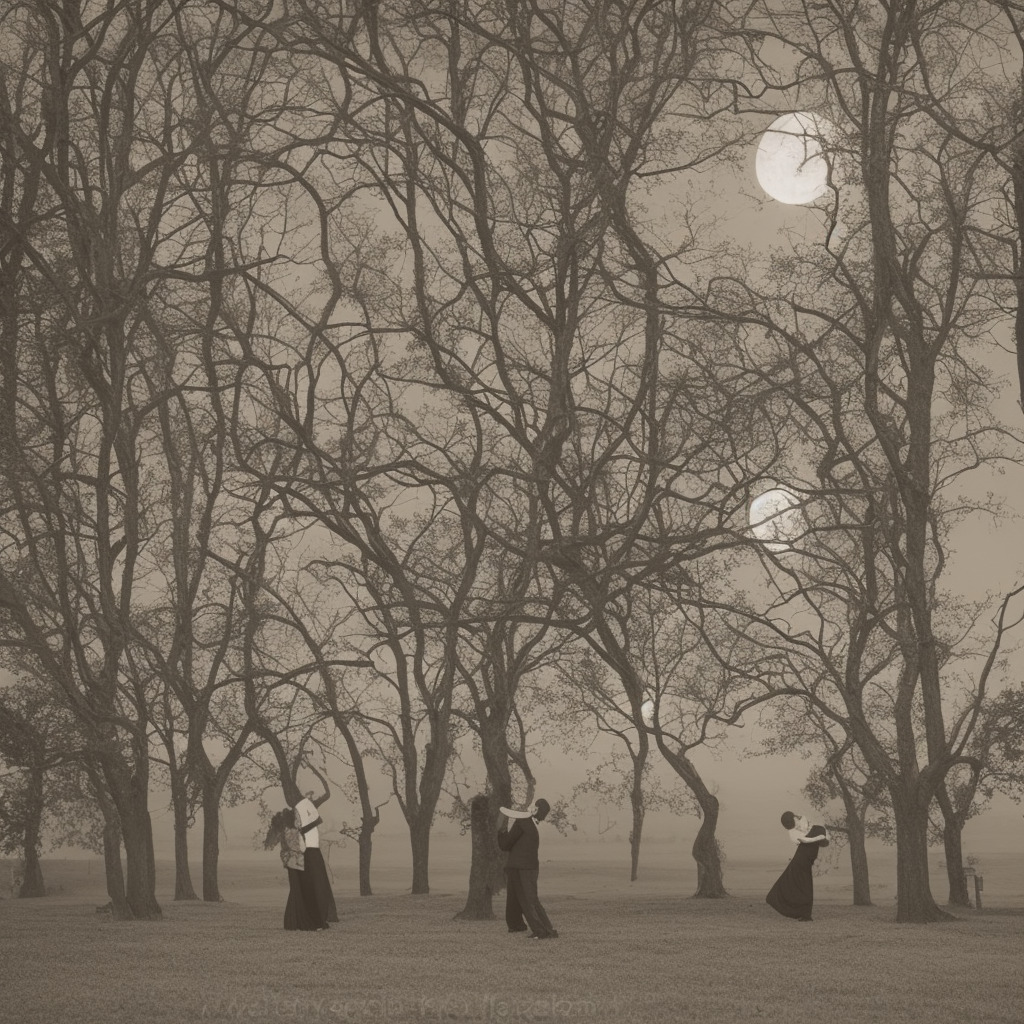🎵 Did you know? “I Will Always Love You” was originally penned by Dolly Parton but gained eternal fame in Whitney Houston’s soaring vocals! 💫 Whitney’s iconic hit still gives us chills! 🥰 #WhitneyHouston #FunFact #IWillAlwaysLoveYou #ClassicHits #MusicTrivia 🎤 Read about it: tinyurl.com/4wbuswfr
A Timeless Classic from a Legendary Diva
Whitney Houston’s eternal legacy: A powerhouse diva who conquered the world with her iconic, heart-stirring rendition of “I Will Always Love You,” inspiring generations to come.

Whitney Houston, one of the most powerful and influential voices in the history of music, is known for her incredible range and vocal prowess. Houston earned her place as one of the best-selling music artists of all time, selling over 200 million records worldwide.
Born in Newark, New Jersey in 1963, Whitney Elizabeth Houston grew up surrounded by music. Her mother, Cissy Houston, was a gospel singer, while her cousin, Dionne Warwick, and godmother, Aretha Franklin, were also legendary figures in the music industry. Whitney Houston began her career as a background singer and eventually signed with Arista Records in 1983. Her eponymous debut album became the best-selling debut album by a woman at that time.
“I Will Always Love You,” arguably Houston’s most iconic song, was initially written and recorded by the legendary singer-songwriter Dolly Parton in 1973. However, it was Houston’s rendition for the 1992 film “The Bodyguard,” in which she starred opposite Kevin Costner, that catapulted the song into the stratosphere. The track spent a record-breaking 14 weeks at number one on the Billboard Hot 100 and remains one of the best-selling singles of all time.
Although Whitney Houston’s powerful vocals and emotional delivery made “I Will Always Love You” a global phenomenon, her career was not without its struggles. She faced issues with drug addiction and tumultuous relationships, which often overshadowed her incredible talent. Despite her personal battles, Houston persevered and continued to contribute to the music industry until her untimely passing in 2012.
Throughout her career, Houston amassed several accolades and awards for her achievements in music, film, and television. She earned a total of seven Grammy Awards, two Emmy Awards, 30 Billboard Music Awards, and 22 American Music Awards. In 2020, Whitney Houston was posthumously inducted into the Rock and Roll Hall of Fame, a testament to the lasting impact of her life and career.
As an experienced music blogger, it is essential to recognize the ever-lasting influence of Whitney Houston and “I Will Always Love You” on the music industry. The song remains an anthem of love, loss, and power, and Houston’s voice continues to inspire and captivate listeners to this day.
Chart-Topping Success and Unforgettable Records
Whitney Houston’s “I Will Always Love You”: A timeless classic that shattered records and cemented her as a legendary vocalist.

Released on November 3, 1992, as part of the soundtrack to the film “The Bodyguard,” Whitney Houston’s rendition of “I Will Always Love You” quickly became a force to be reckoned with on the charts. The song, originally penned and recorded by Dolly Parton in 1973, had already seen success, but Houston’s powerful vocal stylings took it to new heights.
Upon its release, “I Will Always Love You” soared to the top of the charts, making its debut on the Billboard Hot 100 at an impressive #40. It didn’t take long for the track to reach its peak, conquering the #1 spot just two weeks later. What’s even more astounding is that it remained in the top position for a record-breaking 14 consecutive weeks – the longest reign in chart history at the time. This achievement held strong for more than two decades, only being surpassed by “Old Town Road” by Lil Nas X in 2019.
Not only did the song dominate the US charts, but it also reigned supreme on a global scale. “I Will Always Love You” held the #1 position in numerous countries, including the United Kingdom, where it topped the UK Singles Chart for a remarkable 10 weeks. Additionally, the single achieved multi-platinum status in several territories, selling over 20 million copies worldwide and becoming one of the best-selling singles of all time.
Whitney Houston’s “I Will Always Love You” also garnered recognition at the prestigious Grammy Awards. In 1994, the song won three Grammys: Record of the Year, Best Female Pop Vocal Performance, and Best Instrumental Arrangement Accompanying Vocal(s). These awards served as a testament to Houston’s incredible talent and the enduring impact of her iconic rendition.
To this day, “I Will Always Love You” remains a timeless classic that holds a special place in the hearts of music lovers around the globe. Whitney Houston’s unforgettable rendition not only shattered records but also solidified her legacy as one of the greatest vocalists of all time.
Delving into the Heartfelt Lyrics of an Iconic Love Ballad
If I should stay
I would only be in your way
So I’ll go, but I know
I’ll think of you every step of the way
And I… will always love you, ooh
Will always love you
You, my darling you, mmm
Bittersweet memories
That is all I’m taking with me
So, goodbye
Please, don’t cry
We both know I’m not what you, you need
And I… will always love you, ooh
Will always love you
You, my darling you, mmm
Whitney Houston’s rendition of “I Will Always Love You” has touched the hearts of millions around the world, and its lyrics remain a testament to the power of love and the pain of parting. The song was written by Dolly Parton in 1973 and gained massive popularity when Whitney Houston covered it for the 1992 film “The Bodyguard,” which she also starred in alongside Kevin Costner.
The lyrics of “I Will Always Love You” express the feelings of a person who has made the difficult decision to leave their lover, knowing it’s for the best. The protagonist acknowledges that their presence would only hinder their partner and chooses to walk away, cherishing the bittersweet memories they shared. The chorus emphasizes the eternal nature of their love, even as they part ways.
This ballad resonated with audiences during a time when pop culture was slowly shifting its focus to more introspective, emotionally charged themes. The early 1990s were marked by significant events, such as the end of the Cold War and the rise of the grunge movement, which brought about a wave of self-examination and vulnerability. Songs like “I Will Always Love You” provided listeners with a cathartic release, allowing them to connect with their emotions and find solace in the shared experience of love and loss.
The lyrics of “I Will Always Love You” continue to endure in the hearts of music lovers, transcending the boundaries of time and culture. It is a testament to the power of love and the universal struggle of letting go while holding onto cherished memories.
A Visual Masterpiece: The Music Video for “I Will Always Love You”
Timeless Visual Poetry: Whitney Houston’s “I Will Always Love You” captivates with its raw emotion, minimalism, and iconic black-and-white storytelling.
Whitney Houston’s iconic music video for her legendary track, “I Will Always Love You,” initially released in 1992, is as powerful and poignant as the song itself. Directed by the talented Alan Smithee, the video’s visual storytelling perfectly complements the track’s heartfelt lyrics and Whitney’s soulful, resonating voice.
The music video, which has garnered over a billion views on YouTube, is predominantly composed of black-and-white footage. This artistic decision, along with the choice to intersperse scenes from the popular film “The Bodyguard,” which starred Whitney Houston and Kevin Costner, provided the video with an appealing, timeless quality. The movie’s plot, which revolves around the love affair between Houston’s character and her bodyguard, played by Costner, serves as the backdrop for the song and the music video.
Whitney’s deeply emotional performance in the music video is nothing short of captivating. The close-up shots of her face, her expressive eyes, and her passionate delivery of the song make it impossible for viewers to look away. The simplicity of the video’s setting, which features Houston singing on an empty stage, allows her powerful voice and the song’s lyrics to take center stage. This minimalist approach effectively conveys the raw emotion and vulnerability of the song.
One interesting fact about the production is that the music video’s director, Alan Smithee, is a pseudonym often used in the film and music video industries when a director does not want to be associated with the final product. However, in this case, it is unclear why the director chose to use the pseudonym, as the music video has been widely praised for its visual storytelling and emotional impact.
In conclusion, Whitney Houston’s “I Will Always Love You” music video remains a classic, visually stunning masterpiece with its black-and-white footage, compelling excerpts from “The Bodyguard,” and Whitney’s unforgettable performance. The video’s director, Alan Smithee, effectively used minimalism and simplicity to allow the song’s powerful lyrics and Whitney’s unrivaled voice to shine through. As a testament to its enduring appeal, the music video continues to resonate with audiences across generations, reminding us of the timeless power of love and music.
The Mastermind Behind “I Will Always Love You”
Dolly Parton, a prolific singer-songwriter and multi-instrumentalist, is the brilliant composer behind the iconic ballad “I Will Always Love You,” which garnered worldwide acclaim when Whitney Houston performed her rendition. Parton’s immense talents have made her an outstanding figure in the music industry, with a career spanning over six decades. In addition to “I Will Always Love You,” she is known for composing other notable hits such as “Jolene,” “9 to 5,” and “Coat of Many Colors.” These songs, among many others, have cemented Dolly Parton’s status as a legendary songwriter whose creations continue to inspire artists and captivate audiences across generations.
A Timeless Classic: Accolades, Appearances, and Covers
Whitney Houston’s Grammy-winning, chart-topping classic “I Will Always Love You” remains a timeless powerhouse, enchanting generations through film, TV, and captivating covers.

“I Will Always Love You” by Whitney Houston has received numerous awards and accolades throughout its distinguished history. Released in 1992, this iconic song won two Grammy Awards in 1994, including Record of the Year and Best Female Pop Vocal Performance. Additionally, Houston took home the American Music Award for Favorite Pop/Rock Female Artist, thanks in part to the overwhelming success of this single.
The song’s triumph can be credited largely to its inclusion in the soundtrack of the movie “The Bodyguard,” in which Whitney Houston starred alongside Kevin Costner. The film became a massive box office hit, and “I Will Always Love You” topped the Billboard Hot 100 chart for an astonishing 14 weeks. The soundtrack itself also shone, earning the Grammy Award for Album of the Year.
In addition to its success on the big screen, “I Will Always Love You” has been featured on numerous TV shows and even made its way into video game culture. It has appeared in episodes of “The Simpsons,” “Glee,” “American Idol,” “Dancing with the Stars,” and “The Voice.” The song was also included in the video game “Lips,” allowing players to belt out the powerful ballad like Houston herself.
Whitney Houston’s rendition of “I Will Always Love You” is a cover of the original version, written and performed by the legendary Dolly Parton in 1974. Since Houston’s version took the world by storm, several other artists have tried their hand at covering this timeless classic, including Beyoncé, Sarah Washington, and Amber Riley. Each new interpretation pays homage to both Houston’s iconic performance and Parton’s original heartfelt composition.
With numerous awards, countless appearances in various media, and a multitude of covers, it’s no wonder that “I Will Always Love You” continues to be a beloved and enduring classic. The song’s powerful message of love and devotion, as expertly conveyed by Whitney Houston, makes it an enduring favorite – a ballad that will undoubtedly be cherished for generations to come.
Diving into the Musicality of a Timeless Classic
When analyzing the musical structure of “I Will Always Love You,” it’s essential to note that the song is written in the key of A major. This tonality lends itself to the song’s uplifting and heartfelt nature, as major keys often evoke positive emotions. The piece begins with an a cappella introduction, which showcases Whitney Houston’s powerful and emotive vocals, immediately drawing the listener in.
The chord progression primarily follows a I-IV-V-vi pattern, which is relatively common in pop music, yet it is Houston’s soulful delivery that truly elevates the song. The verses follow an A-E-F#m-D progression, while the chorus shifts to a simpler E-F#m-D pattern. This change in the chord structure adds a sense of tension and release, which is a hallmark of effective songwriting. The melody itself is highly expressive, with a wide vocal range that spans nearly two octaves, allowing Houston to showcase her expansive vocal capabilities.
Throughout the song, the tempo remains at a steady 66 beats per minute (BPM), giving the piece a sense of space and timelessness. This slower tempo allows for the full weight of the emotion within the lyrics and melody to be expressed. Additionally, Houston’s use of melisma – singing multiple pitches on a single syllable – brings an added layer of depth and complexity to the piece.
One of the most iconic moments in “I Will Always Love You” comes in the final chorus, where Houston modulates up a half-step from the key of A major to Bb major. This modulation adds an electrifying sense of intensity and drama to the climax of the song, further highlighting her exceptional vocal abilities.
In terms of instrumentation, the song features a subtle yet effective arrangement that complements Houston’s vocals without overpowering them. A combination of piano, electric keyboard, drums, and strings provides a rich and lush backdrop for her voice, with the occasional saxophone line adding an extra touch of sophistication.
Overall, “I Will Always Love You” is a masterclass in emotive and powerful songwriting, with its timeless melody, intricate chord progression, and carefully orchestrated arrangement. It’s Whitney Houston’s unparalleled vocal performance, however, that ultimately solidifies the song’s status as an enduring classic in the annals of popular music.







